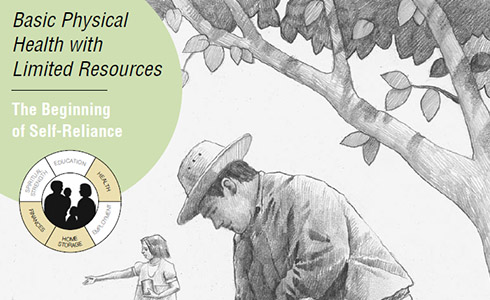
Physical health can be improved in specific ways—even with limited resources. As people take care of their own health needs, they become more able to meet their other physical, educational, emotional, and spiritual needs. While this guide is useful, it is not comprehensive. Additional information and resources are needed to achieve optimal health.
Disease Prevention
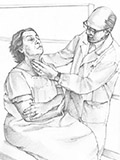 A critical part of good physical health is disease prevention. Important first steps to improving physical health are water purification, clean food preparation, receiving immunizations, avoiding diseases spread in human waste and body fluids, and, if needed, receiving regular treatment for parasitic worms.
A critical part of good physical health is disease prevention. Important first steps to improving physical health are water purification, clean food preparation, receiving immunizations, avoiding diseases spread in human waste and body fluids, and, if needed, receiving regular treatment for parasitic worms.
Cleanliness and Sanitation
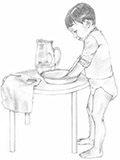 Cleanliness and sanitation will decrease the presence of germs to help prevent disease and maintain physical health. Adequate sanitation can be achieved by bathing regularly; caring for teeth; cleaning and sanitizing the kitchen, living areas, and bathroom; and washing laundry.
Cleanliness and sanitation will decrease the presence of germs to help prevent disease and maintain physical health. Adequate sanitation can be achieved by bathing regularly; caring for teeth; cleaning and sanitizing the kitchen, living areas, and bathroom; and washing laundry.
Nutrition
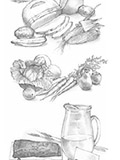 Proper nutrition is also critical for good physical health. Eating growth foods (for growth and healing), energy foods, and protection foods (for vitamins and minerals) is essential to good nutrition. In addition, women and children require special foods to meet particular needs. Though careful selection of healthy foods can stretch family budgets, it will decrease possible future expenses required to repair poor physical health resulting from lack of proper nutrition. If possible, some food and water should be stored to provide nutrition at all times and for all emergencies.
Proper nutrition is also critical for good physical health. Eating growth foods (for growth and healing), energy foods, and protection foods (for vitamins and minerals) is essential to good nutrition. In addition, women and children require special foods to meet particular needs. Though careful selection of healthy foods can stretch family budgets, it will decrease possible future expenses required to repair poor physical health resulting from lack of proper nutrition. If possible, some food and water should be stored to provide nutrition at all times and for all emergencies.
Family Food Production
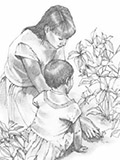 Family food production can provide much-needed supplemental nutrition. A garden requires planning, fertilization, seeds or transplants, soil preparation, and work to maintain it. New methods make even small gardens beneficial to families. Small animal production can provide high-quality growth foods critical for the growth of children and health of adults.
Family food production can provide much-needed supplemental nutrition. A garden requires planning, fertilization, seeds or transplants, soil preparation, and work to maintain it. New methods make even small gardens beneficial to families. Small animal production can provide high-quality growth foods critical for the growth of children and health of adults.
Basic Family Medical Care
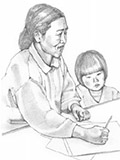 By learning how to provide basic family medical care, families can meet personal health needs and prevent small problems from becoming large. On their own, family members can often treat fever, diarrhea, and dehydration; take care of many wounds and cuts; provide general skin care; and treat mild or moderate burns.
By learning how to provide basic family medical care, families can meet personal health needs and prevent small problems from becoming large. On their own, family members can often treat fever, diarrhea, and dehydration; take care of many wounds and cuts; provide general skin care; and treat mild or moderate burns.